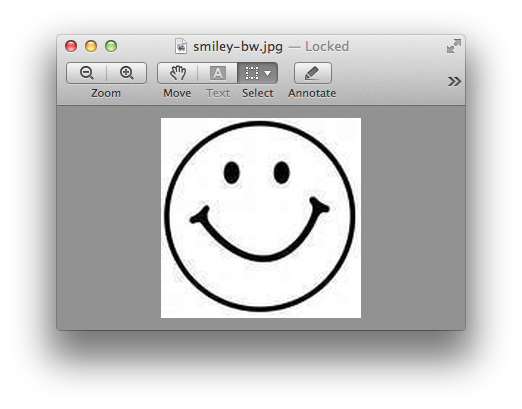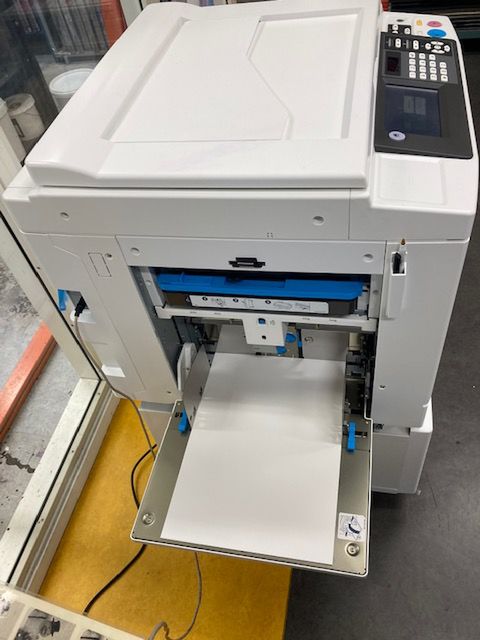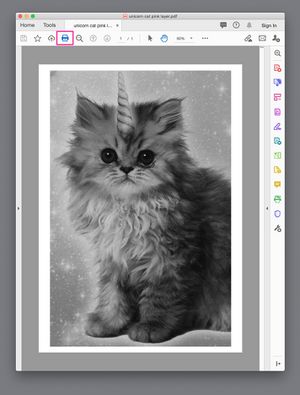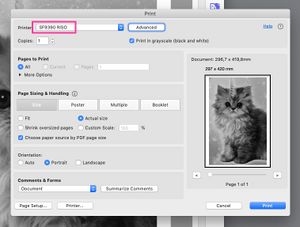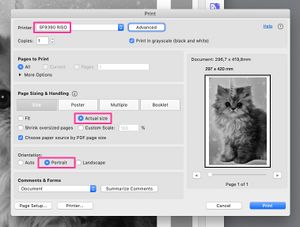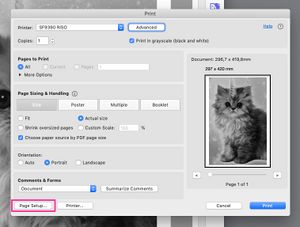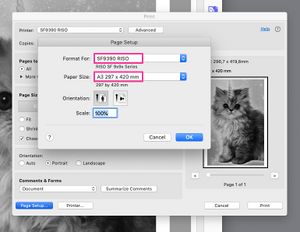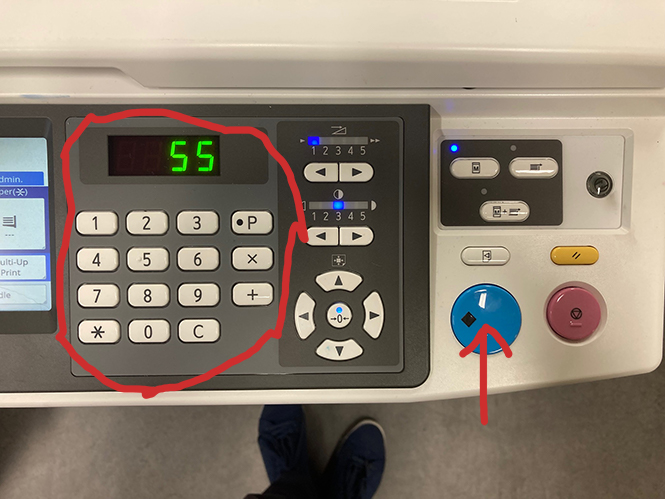Difference between revisions of "Quickstartguide:Riso"
m |
|||
| (12 intermediate revisions by 3 users not shown) | |||
| Line 31: | Line 31: | ||
[[File:riso-file.png]] | [[File:riso-file.png]] | ||
<br> | <br> | ||
* Place the paper into the RISO. For the first prints, you can pick some paper from the misprints box. The best paper you can use for the RISO printer is uncoated paper, similar to sketch paper. The grammage can vary from 46 g/m<sup>2</sup> to 210 g/m<sup>2</sup> and the size can be A4 or A3. | |||
<br> | |||
[[File:Screenshot (506).png|600px]] | |||
'''Do not use the following types of paper, as they can cause jams or misfeeds:''' | |||
* Extremely thin paper (less than 46 g/m 2 (13-lb bond)) | |||
* Extremely thick or heavy paper (greater than 210 g/m 2 (110-lb index)) | |||
* Wrinkled, curled, folded, or torn paper | |||
* Chemically treated or coated paper (such as thermal or carbon paper) | |||
* Paper having a sticky section or holes (such as an envelope and label paper) | |||
<br> | <br> | ||
[[File:Place the paper.jpg]] | [[File:Place the paper.jpg]] | ||
==== Color separation ==== | ==== Color separation ==== | ||
| Line 116: | Line 124: | ||
* Check the paper switch at the back of the printer. It is important to avoid paper jams. Turn in on the right if you are printing on thin paper (80gsm-120gsm)and on the left if you are working with thick paper (150gsm-300gsm) | * Check the paper switch at the back of the printer. It is important to avoid paper jams. Turn in on the right if you are printing on thin paper (80gsm-120gsm)and on the left if you are working with thick paper (150gsm-300gsm) | ||
<br> | <br> | ||
[[File: | [[File:Screenshot (505).png|600px]] | ||
<br> | |||
<br> | |||
*If your paper is getting stuck, multiple paper sheets are fed at the same time or the printer skips sheets check the knobs | |||
<br> | |||
[[File:Risopapermanual copy.png]] | |||
<br> | <br> | ||
| Line 123: | Line 136: | ||
[[File:Pressme.jpg]] | [[File:Pressme.jpg]] | ||
<br> | |||
== Designing for Riso == | |||
A big help for Color separation, halftoning, posterizing, layouts for art prints, zine and booklet imposition, and a bunch of other fun things is [https://spectrolite.app/ spectrolite.app] <br> | |||
Spectrolite is a Mac desktop app by[https://anemone.studio/ Anemone] to make colorful 🌈 risograph prints and zines more easily | |||
== Interesting links == | |||
* [https://exploriso.info/ exploriso.info] | |||
* [https://www.stencil.wiki/ www.stencil.wiki] | |||
Latest revision as of 16:37, 7 February 2024
There are two stages involved in printing on the RISO. First Master creation, then Printing.
MASTER CREATION
Step 1. Choose colour
- Turn on the RISO printer
- Open the front of the RISO
- Press the blue button to release the drums
- Wait until the button is solid blue
- Roll out the colour that you wish to change
- Pick it up by the blue handles
- Take out the colour you wish to use
- Place into the empty drum tray and roll it back in until it clicks closed
- Close the door
Step 2. Master Creation
with the Computer
- Create a pdf file or layer per colour you want to print in greyscale
- Place the paper into the RISO. For the first prints, you can pick some paper from the misprints box. The best paper you can use for the RISO printer is uncoated paper, similar to sketch paper. The grammage can vary from 46 g/m2 to 210 g/m2 and the size can be A4 or A3.
Do not use the following types of paper, as they can cause jams or misfeeds:
- Extremely thin paper (less than 46 g/m 2 (13-lb bond))
- Extremely thick or heavy paper (greater than 210 g/m 2 (110-lb index))
- Wrinkled, curled, folded, or torn paper
- Chemically treated or coated paper (such as thermal or carbon paper)
- Paper having a sticky section or holes (such as an envelope and label paper)
Color separation
spectrolite is a program that can help you to make colour separations for the Riso. It is mostly used to print photographs or illustrations with multiple masters.
Step 3. Printing the Master
Opening the printing dialogue window
- Open the pdf file with the black and white image in Acrobat
- Click the printing icon on the top left
Selecting the right settings for the RISO printer
- Make sure the printing dialogue is directing you to the right RISO printer (you can see the name above, ex. SF9390 RISO)
- Check the desired settings in the main dialogue window (actual size, orientation and the right page number in the document)
- Set the right size of the paper on the Page Setup button (ex. A3, A4) and the format for the selected printer. Then click OK
Change the Coloring Settings
- To change the coloring settings, click on the “Printer...” button.
- In the small menu list, you can go to the Coloring settings. Here you can choose different effects. If you need to print a photograph or an illustration, check the Photo setting. For type, it is often recommended to select Line. In addition, you can play with other printing effects called Grain Touch or Screen Covered (see the final effect on the RISO Color Overview sheet above the printer for reference).
There is no need to change the colour of the ink through this window, it will automatically recognize it later while making a master
- When everything is selected, click Print.
Finally, send your design to the RISO printer by clicking the blue Print button
Output the file on the RISO printer
After having sent the file to the printer, there are still a few steps you have to take beofre having your first master print.
- When sending a master, the RISO printer will receive data from the computer. You can check it on the RISO printer display by clicking the Data-Map button.
(image)
- When opening this window, you can check the name of the file. If you have accidentally sent the wrong file, press the Clear button. If the file has been paused by the printer, continue by clicking Output.
(image)
- If the printer is warning you that the color is wrong even if you previously put the right ink drum, just press continue.
(image)
MAKE MORE PRINTS
Now that your master is done and looks well saturated with your chosen colour, you can make as many prints as you like!
- Place your paper in the feed tray. Make sure it is the right number and well aligned.
- Check the paper switch at the back of the printer. It is important to avoid paper jams. Turn in on the right if you are printing on thin paper (80gsm-120gsm)and on the left if you are working with thick paper (150gsm-300gsm)
- If your paper is getting stuck, multiple paper sheets are fed at the same time or the printer skips sheets check the knobs
- Select how many copies you would like to make and press the blue button. If anything goes wrong during printing or you want to stop the machine, press the red button.
Designing for Riso
A big help for Color separation, halftoning, posterizing, layouts for art prints, zine and booklet imposition, and a bunch of other fun things is spectrolite.app
Spectrolite is a Mac desktop app byAnemone to make colorful 🌈 risograph prints and zines more easily

